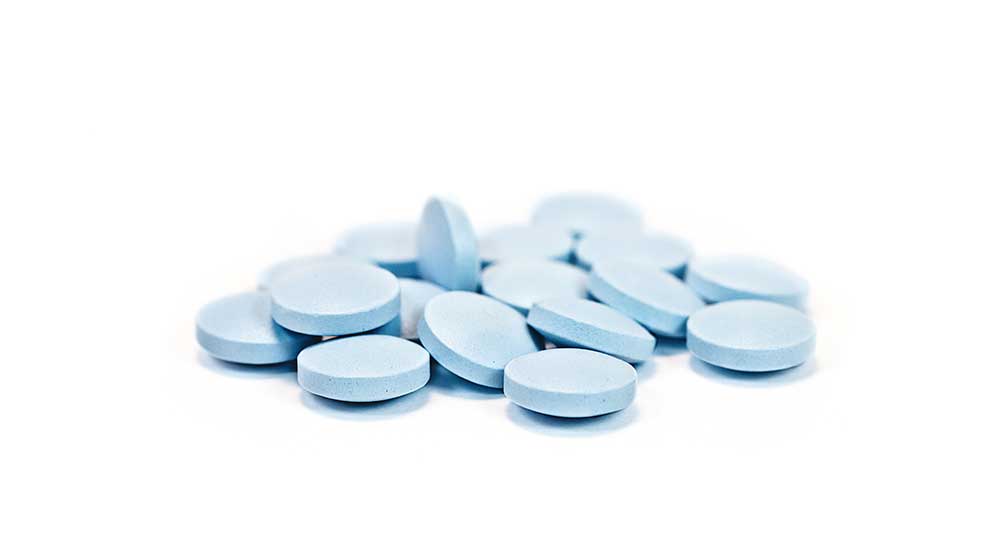Halcion (Triazolam) Side Effects, Interactions, & Warnings
Halcion is a safe medication when it is used under a doctor’s orders. However, there is some risk of side effects, and these can be exacerbated by Halcion abuse. The most severe side effects are hallucinations, memory loss, suicidal thoughts, and breathing problems.

Triazolam (brand name Halcion) is a benzodiazepine used to treat those suffering from insomnia, or the difficulty of staying or falling asleep.
Halcion is a Schedule IV controlled substance as defined by the United States Drug Enforcement Administration (DEA), meaning it has the potential for psychological or physical dependence.
The drug may be used for short-term use only. This is because triazolam affects the central nervous system (CNS). Acting as a CNS depressant, even taking a lower dose of the medication can result in various side effects.
Halcion Side Effects
The side effects of Halcion range in severity. Those who take Halcion should be aware of the more common and serious side effects associated with the drug.
Common Side Effects
Common side effects of triazolam may include:
- drowsiness
- sedation
- lightheadedness
- sleepiness
- headache
- nausea
- cognitive impairment
Serious Side Effects
Serious side effects of triazolam may consist of:
- memory loss
- hallucinations
- aggressiveness
- breathing problems
- suicidal thoughts
- withdrawal symptoms
- sleepwalking
- overdose
Halcion Warnings
Halcion is a prescription drug that has the potential to cause adverse side effects when it is mixed with other medications or taken by people with specific medical conditions.
The most common drug warnings for Halcion are negative drug interactions, contraindications, and pregnancy/breastfeeding warnings.
Halcion Drug Interactions
Any of the side effects caused by Halcion may be heightened when the drug is combined with other medications. Serious allergic reactions can take place, including trouble breathing or life-threatening health problems.
To avoid adverse reactions, do not combine Halcion with:
- other benzodiazepines such as alprazolam (Xanax), clonazepam (Klonopin), and diazepam (Valium)
- over-the-counter pain medications
- certain vitamins or supplements
- antihistamines
- muscle relaxants
- certain antifungal medications such as itraconazole or ketoconazole
- opioids
- grapefruit juice
- calcium channel blockers including diltiazem
- HIV medications such as lopinavir and ritonavir
- isoniazid
- cimetidine or ranitidine
- nefazodone
- antibiotics such as clarithromycin or erythromycin
- any CNS depressants, including alcohol
- antidepressants such as monoamine oxidase inhibitors (MAOIs)
Combining any of these drugs can lead to the worsening of side effects.
Medical Conditions
According to MedlinePlus, those who take Halcion should speak with their prescribing doctor if they have any of the following medical conditions:
- a history of sleep apnea
- a history of liver disease
- a history of seizures
- if you are pregnant
- if you have mental health problems
Halcion Withdrawal Symptoms
Those who suddenly stop taking Halcion may suffer from various withdrawal symptoms as stated by the United States Food and Drug Administration (FDA).
Halcion withdrawal symptoms may include:
- rebound insomnia
- seizures
- muscle cramps
- daytime anxiety
- sweating
- vomiting
Halcion Overdose
Those who take large doses of Halcion, abuse the drug in any manner, or mix it with opioids or alcohol may suffer a life-threatening overdose. If an overdose is suspected, seek urgent medical attention.
Symptoms of a Halcion overdose may consist:
- respiratory depression
- coma
- confusion
- slurred speech
- impaired coordination
- serious drowsiness
Substance Abuse Treatment
At Ohio Recovery Center, we provide a wide variety of treatment programs. As a top healthcare provider for prescription drug rehab in Ohio, we offer numerous treatment plans.
At our treatment center, we can assist you with evidence-based care, medical detox, and other inpatient treatment options. Contact us today to learn more about how we can help.
- Drug Enforcement Administration (DEA) https://www.dea.gov/sites/default/files/2020-06/Benzodiazepenes-2020_1.pdf
- Food and Drug Administration (FDA) https://www.accessdata.fda.gov/drugsatfda_docs/label/2016/017892s049lbl.pdf
- National Institute o Drug Abuse (NIDA) https://nida.nih.gov/publications/drugfacts/prescription-cns-depressants
- National Library of Medicine: DailyMed https://dailymed.nlm.nih.gov/dailymed/drugInfo.cfm?setid=a0da0dba-a56d-486b-a45b-e8a7cdfbeac6
- National Library of Medicine: MedlinePlus https://medlineplus.gov/druginfo/meds/a684004.html

